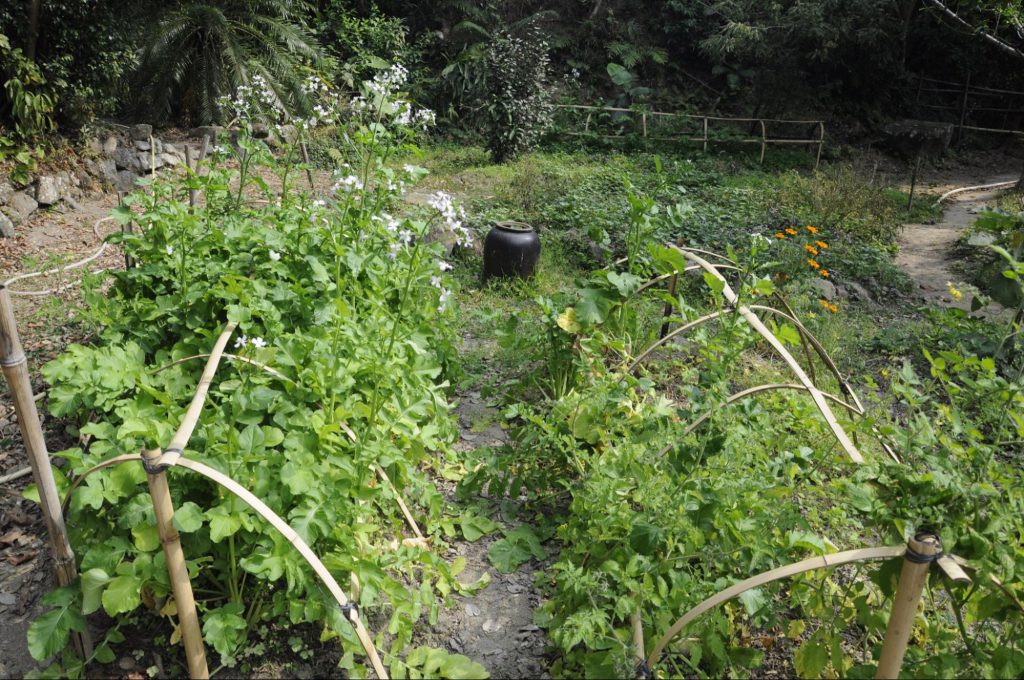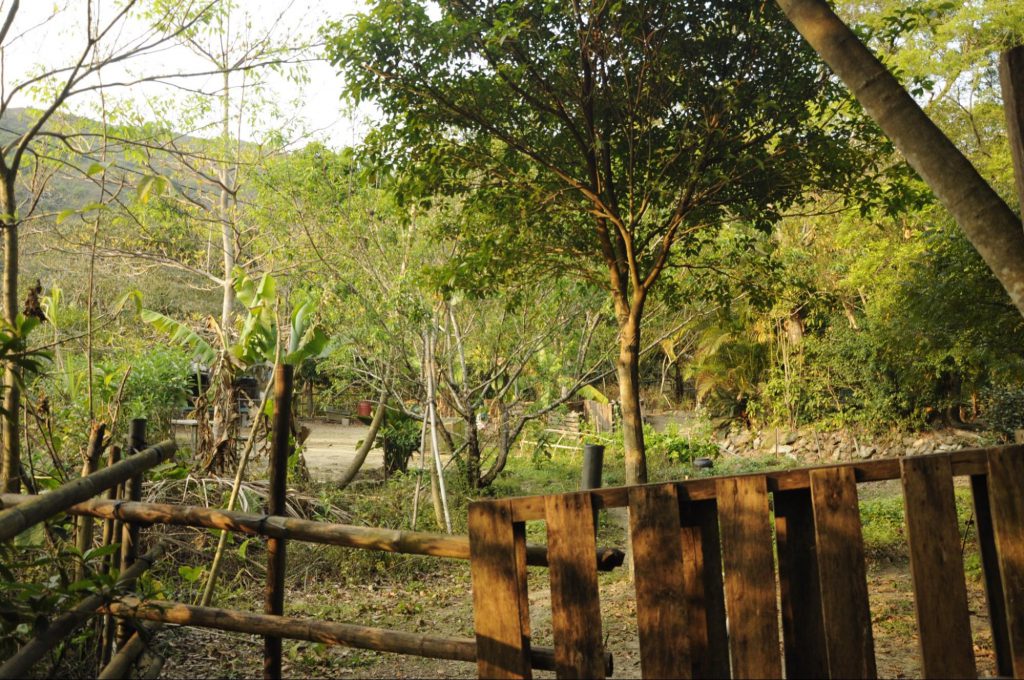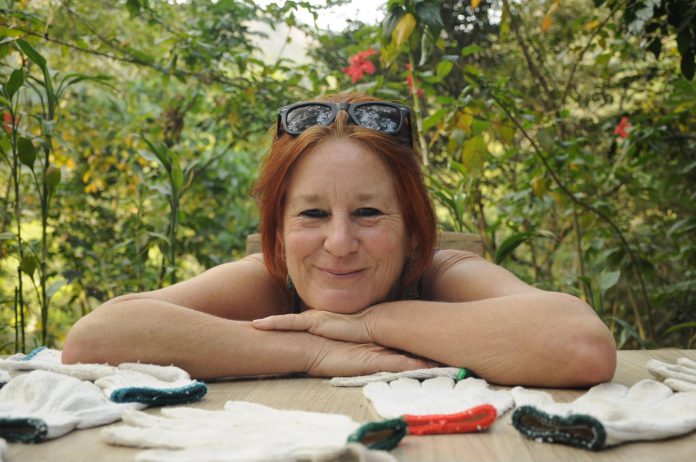Join Jenny Quinton on a journey to Ark Eden in Mui Wo, where permaculture, organic farming, and environmental protection are the focus for a sustainable future.
By Lilou Margueron
Former primary school teacher Jenny Quinton is running a permaculture and eco-education centre in a remote site in Mui Wo where she spreads messages about environmental protection.
“Teaching about the environment in the classroom is not effective. If you are going to talk about the environment, you really need to be in the environment,” she explains.
Quinton applies this philosophy to the holiday camps she organises for children, where they can learn about the environment while doing various activities in nature.
“The parents realised their children are pretty deprived here in Hong Kong. They need to get outside.”
The project designer from England, who is in her 50s, hopes that her eco-education centre can also reach out to grown-ups whom she has met through various workshops, permaculture classes, or wellness activities such as yoga, dance and qigong—a practice based on Chinese medicine principles involving meditation, body exercises and controlled breathing.
Quinton also organises other activities such as organic farming, composting, waste management, ecological building and ecological restoration.
“We have teachers and students who usually want to educate themselves on ecology. We have companies who want their organisations to become more eco-friendly or do some services,” Quinton explains.
Reaching the site, visitors are welcomed by farming spaces inspired by permaculture, a term derived from “permanent agriculture”, which refers to systems of agricultural growth designed to be sustainable and self-sufficient.

By applying permaculture ethics of earth care, people care and fair share, Quinton hopes that the centre she has now been running for 17 years can inspire people to care and respect all living creatures.
“We are saving the planet!” she says cheerfully, adding that Hong Kong needs more places like Ark Eden.
Starting from Scratch
The story of Ark-Eden began when Quinton landed in Hong Kong in 1989, on a backpacking trip with her partner, the father of her children. They discovered Lantau after a few weeks and fell in love with it.
They found a house which is about half an hour walk away from Mui Wo ferry pier. She is still living at the site, which is also the current site of Ark Eden.
In her first few years in Hong Kong, Quinton worked as a primary school teacher.
Witnessing fires in the hills started by grave sweepers every year, she joined green associations and has so far planted 37,000 trees, mostly in Lantau island.
In 2004, the Hong Kong government released a Concept Plan to develop Lantau island, including proposals to build a golf course, a logistics park, a theme park, a racecourse, and a spa.
The plan was heavily criticised by environmentalists who feared a negative impact on the island’s conservation. Moreover, local residents worried that it would only benefit overseas tourists and developers.
Quinton and her friends, who had alternative ideas about the island’s future, teamed up and conceived a blueprint of Ark Eden, which was originally designed to be a huge environmental centre in Mui Wo.
When her friend Neil Mc Laughlin, the architect of the project, died from a brain tumour, Quinton promised him she would bring the idea to fruition.
But starting the project from scratch was not easy. Also, she was a single mom at the time.
At first, she thought of creating Ark Eden in an abandoned rural school in Wo Tin village, but was refused the place due to her foreign identity.
“I went to the beach, and I cried for an hour. And I beat the sand. And then I remembered I have a house. I’ll use my house,” she recalls.
There is no developed route to get to Ark Eden, visitors have to hike for half an hour through a forest.

“I never imagined anyone would come this far, because everyone just thinks you need somewhere that is convenient. But the location is actually extremely good for everyone, especially for the kids, walking up and down…they get fit!” Quinton says.
To kickstart the project, Quinton relied on a network of experts affiliated with the Hong Kong green groups she was part of.
“I did not know how to do organic farming, so I invited them and saw what they did, and I learnt the skills through observation,” she says.
When Ark Eden started running in 2006, Quinton had to use her living room as a classroom, where sometimes up to thirty children would pile up to learn about the environment.
Thinking Lantau’s Future
Quinton spends a lot of time thinking about Lantau’s future in light of the government’s development plans for the island.
The controversial Lantau Tomorrow Vision, which plans to build 1,700 hectares of artificial islands along the eastern coast of Lantau, is expected to start in 2026.
In a recent talk she held at a monthly meeting for people interested in environment-related matters, the former teacher presented a plan she wrote for a greener Greater Bay Area.
For her, it all depends on three pillars: environmental protection, eco-education, and regenerative tourism.
“Hong Kong is just this amazing city that is to be treasured, particularly Lantau and its landscape. It is an incredible place and the natural resources are undervalued,”
She hopes that Hong Kong can abandon the “old-fashioned, money is everything mentality” to focus on the long-term needs of younger generations.
“I think if you deeply care for children, then you have to care for the environment. Otherwise, that is really cruel for them,” she says.
Edited by Charlie Chun
Sub-edited by Charmaine Choi







































